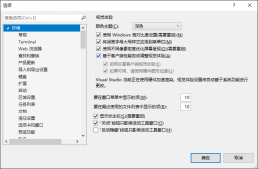C++中std::string是日常Coding中经常使用的一个类,使用起来非常方便,但是也存在一些弊端。
如下代码,参数传递的过程发生了内存分配(Memory Allocation)和内存拷贝。
|
1
2
3
4
5
6
7
8
|
void fun(const std::string& s) { std::cout << s << std::endl;}const char* ch = "hello world";// bad way, expensive if the string is longfun(ch); |
再看下面的常用的字符串截取实现:
|
1
2
3
4
5
|
// very long stringstd::string str = "lllloooonnnngggg sssstttrrriiinnnggg"; // bad way, expensive if the string is longstd::cout << str.substr(15, 10) << '\n'; |
为了进一步的压榨程序的性能,需要移除掉这些昂贵的字符串内存分配和拷贝操作。C++17中提供了std::string_view可以帮助我们实现这一功能,该类并不持有字符串的拷贝,而是与源字符串共享其内存空间。
string_view构造函数
|
1
2
3
4
5
|
constexpr basic_string_view() noexcept; (since C++17)constexpr basic_string_view(const basic_string_view& other) noexcept = default; (since C++17)constexpr basic_string_view(const CharT* s, size_type count);(since C++17)constexpr basic_string_view(const CharT* s); (since C++17)template<class It, class End> |
虽然没有定义参数为std::string的std::string_view函数,下面的代码仍然可以通过编译。
|
1
2
|
std::string str("hello string view!");std::string_view sview(str); |
因为std::string类重载了std::string到std::string_view的转换操作符。
|
1
|
operator basic_string_view<charT, traits>() const noexcept; |
std::string_view避免内存拷贝
有了string_view,我们就可以很好的解决文章开头提到的问题。
|
1
2
3
4
5
6
7
8
9
10
11
|
void fun(const std::string_view& s) { std::cout << s << std::endl;}const char* ch = "hello world, char";fun(ch); const std::string str = "hello world, string";fun(str);fun({ch, 5}); |
有了std::string_view,函数参数不管是字符串数组指针,还是std::string,都不需要拷贝内存源字符串。
|
1
2
3
4
5
6
7
8
|
// very long stringstd::string str = "lllloooonnnngggg sssstttrrriiinnnggg";//Good way - No copies are created!std::string_view view = str;// string_view::substr returns a new string_viewstd::cout << view.substr(15, 10) << '\n'; |
同理,字符串的substr()函数也不需要再进行拷贝了,这对于非常长的字符串,可以有效的提升程序的性能表现。
std::string_view注意事项
由于std::string_view并不持有字符串的内存,所以它的生命周期一定要比源字符串的生命周期长。一些典型的生命周期管理错误的例子:
|
1
2
3
4
5
6
|
std::string_view sv = std::string("hello world");std::string_view fun() { std::string str("hello world"); return std::string_view(str);} |
std::string_view的结尾并没有\0结束符,所以在输出std::string_view的时候要注意边界,如下代码:
|
1
2
3
4
5
6
7
8
9
10
11
12
13
14
15
16
|
#include <iostream>#include <vector>#include <string>#include <string_view>int main() { const char* ch = "hello world"; std::string_view sv(ch, 2); std::cout << sv << std::endl; std::cout << sv.data() << std::endl; return 0;} |
程序输出:
|
1
2
|
hehello world |
std::cout << sv.data() << std::endl; 这行代码输出了hello world,这是因为sv仍然指向源字符串内存,调用sv.data()打印时,仍然沿用了C++对于字符串的约定,直到遇到结束符\0时,打印才结束,这时候就输出了完整的源字符串内容。当然这里明显是不符合预期的,尤其是std::string_view指向的字符串没有\0结束符的时候,程序很容易出现潜在的内存问题。所以此处一定要小心。
参考材料
https://riptutorial.com/cplusplus/example/6571/using-the-std–string-view-class
https://en.cppreference.com/w/cpp/string/basic_string_view
https://segmentfault.com/a/1190000018387368
以上就是C++17 使用 std::string_view避免字符串拷贝优化程序性能的详细内容,更多关于c++17 std::string_view的资料请关注服务器之家其它相关文章!














